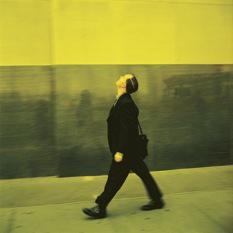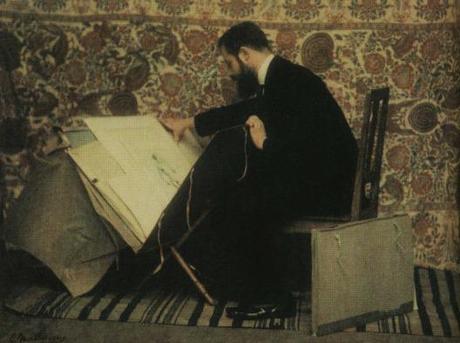
According to Sherry Turkle, author of The Erosion of Attention and the Coming Dark Age, there are three stages in the subcultures of AI, hacking and home-computer hobbyism: a first has a ‘metaphysical’ reaction to the machines, asking the Kierkegaard question about what it means to be alive; a second development is about ‘mastery’ and will to win at games by using the computers, while a last type of reflection appears to be centered around ‘identity’—tinkering and imagining things from scratch, aggressively, competitively, or dreamily. Compare the first stage with Harry Redknapp’s uncritical acceptance of tactical Luddism, and his desire to take the game at (inter)face value; the second character with the media breeziness of coaches such as Villas-Boas or Benitez, who constantly resort to computation as a momentary erosion of the distance between them and their disaffacted fans, magical rather than debilitating; and the third moment with the anthropologist-manager, like Hiddink or Capello, for whom online role-playing and the Second Life has a value in dollars, and who return from a foreign culture better equipped to understand its virtuality.
And then compare this with Anthony Lane’s musings about watching the Olympic Games in Beijing and sizing up Michael Phelps’s enormous wingspan taking a dip at the National Aquatics Center for the men’s four-hundred-meter individual medley: applied to the Olympics, Turkle’s three-fold typology turns into those who came to sell, the competitors, afflicted by the old Ben Jonson problem of being the second-best because of lousy luck, and those who are there to simply watch. Applied to life, it’s the slacker, couch potato, tremulous voyeur into which every devotee of Serie A or English Premier League is transformed into on Sunday: half man, half osprey himself, like the humongous Phelps. Ask Turkle and Lane; and beyond the, ask Pythagoras.
An American in the danger zone, Anthony Lane was always going to soften his description into a permanent freeze of geniality—China itself having a status (like Pato in Milan) roughly equivalent to that of Simba at the end of The Lion King, before the whole place goes nuts. As for Turkle, it would not surprise anyone to find her fighting against the triumphalist Web luminaries, since she intervened with alarm during the ‘wiretapping’ scandal of the George W. Bush administration in 2006 to denounce a turn in the world of computers from a time in which they were represented a conceptual challenge to an utterly pragmatic attitude.
Like Turkle, many writers are atoning for the things that went wrong in an earlier, sunnier era of the blogosphere, while also manifesting a desire to ‘meet the machine’ more than halfway. The effect is that of a Ziggy Stardust who came down from Mars to meet his friend at an ice cream parlor, and discover that he got stuck with a simulation of companionship. Apart from the obvious inability to be there at all times, are soccer stadiums a reluctant place for people to reflect on loyalty and predictability? Are especially the new stadiums and their arcades—those stylish, lively and bustling rows of shops covered by glass roofs—an apt place to cultivate what Honoré de Balzac called the gastronomy of the eye? Or is it better to conceal your identity, to stroll incognito? (A good art to master is, after all, that of seeing without being caught looking, suggests the Polish sociologist Zygmunt Bauman.)

Cyberflâneurs are few and far between, while the very practice of cyberflânerie seems at odds with the world of social media and with the life inside the stadium. Engaging the history of flânerie may be a good way to start answering these questions. In a recent opinion piece for the New York Times, Evgeny Morozov recalls how the critic Walter Benjamin viewed the flâneur as an emblem of modernity and his figure (it was predominantly a “he”) firmly associated with 19th-century Paris. The flâneur was not asocial, he needed the crowds to thrive; but he did not blend in, preferring to savor his solitude. And he had all the time in the world: there were reports of flâneurs taking turtles for a walk. (Today a Mark Van Bommell would fit this description in midfield, adapting his gait to better identify the next victim, to then proceed and beat the shit out of him.) Morozov is right to suggest, I think, that Facebook is the Baron Haussmann of internet, the single, overarching factor that is selling the romanticism of early browsing—those days spent “surfing” using “Internet Explorer” or “Netscape Navigator”—into a world colonized by governments and corporations.
The tempo of today’s soccer is different as well. A decade ago, a concept like the “real-time chalkboard,” in which our every tweet and status update is instantaneously indexed, updated and responded to, was unthinkable. Today, it’s like tactics are becoming Silicon Valley’s favorite buzzword. That’s no surprise: sports fans like speed and efficiency. Ziggy’s band is a cat from Japan who is licking you a smile. But what about the slowly loading pages of old, the weird poetics of bulky number nines, the scruffy center-backs opening new spaces for play and interpretation. . . Occasionally, this slowness may have even alerted us to the fact that we were sitting in front of a computer. Well, that turtle is no more; the midfield turtle now really knows how to hurt. ♦

